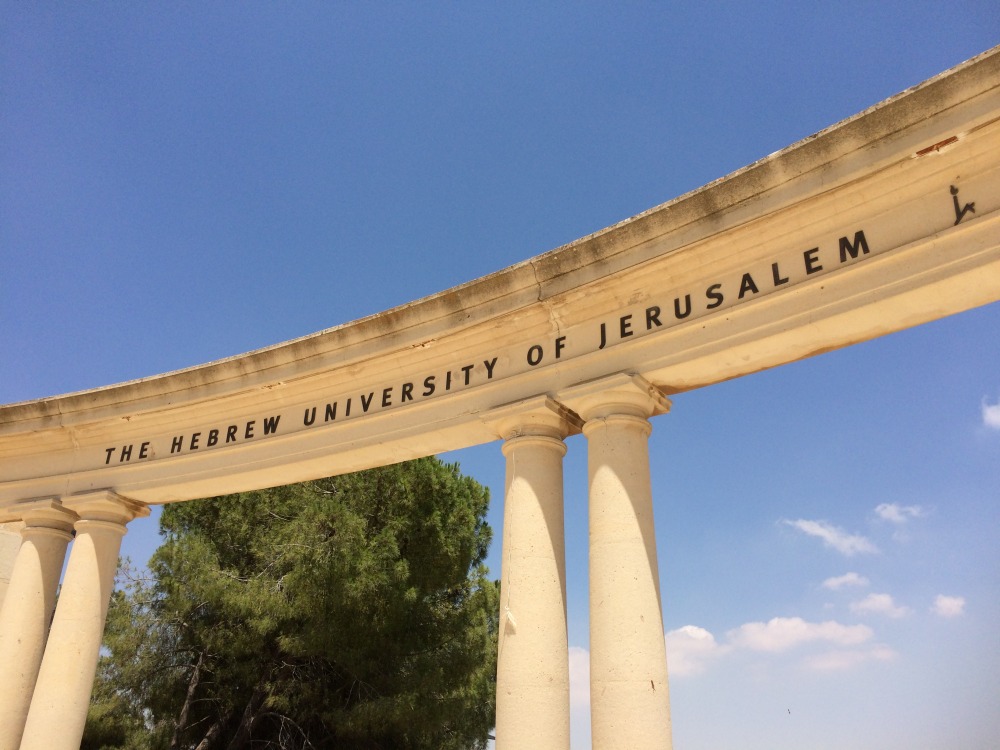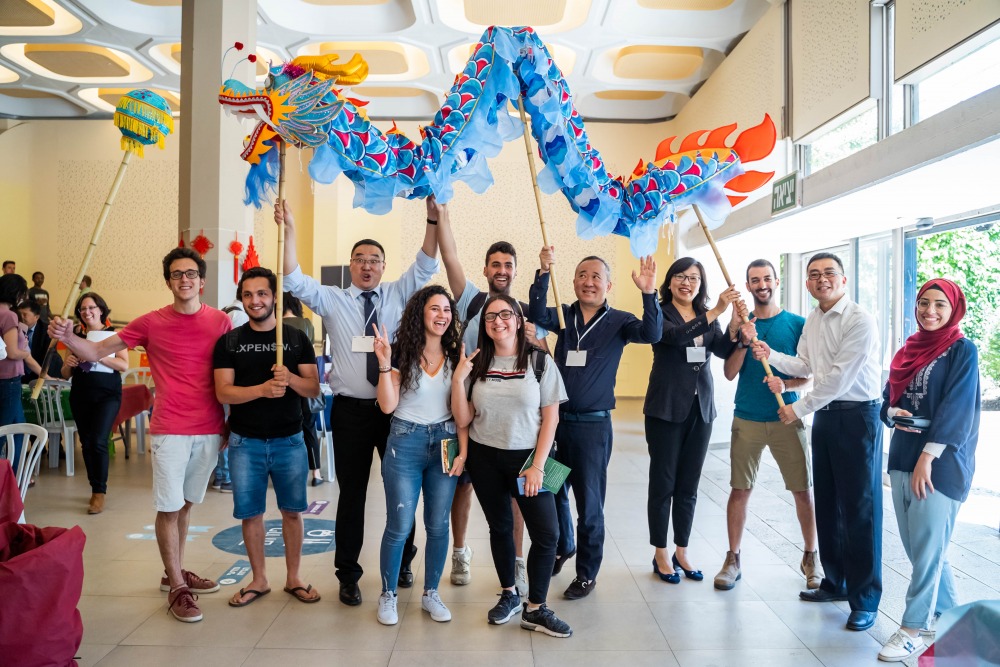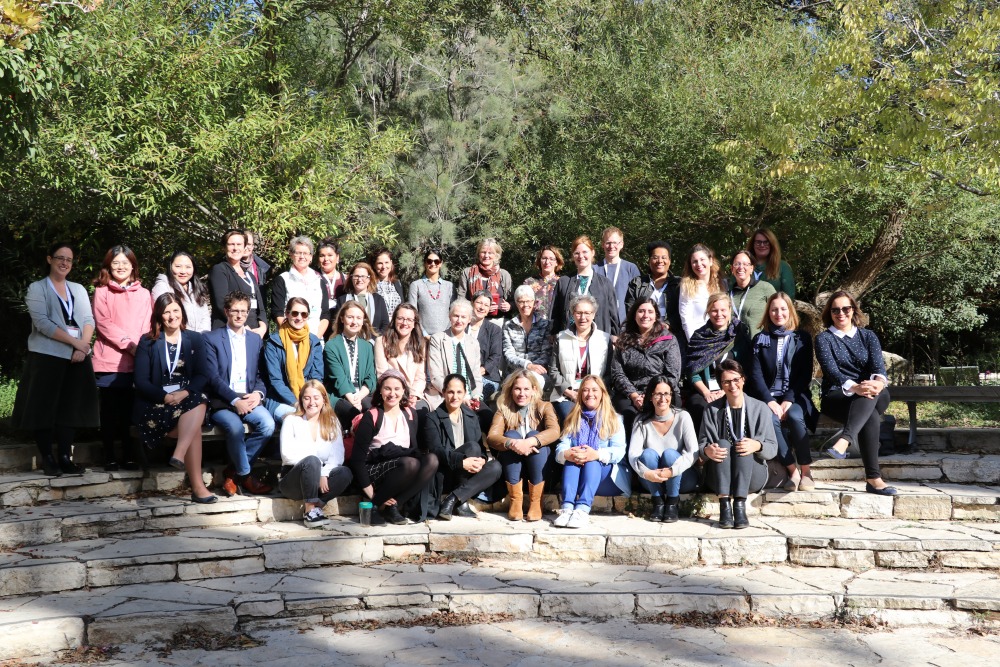Partnerships
Partnerships
Strategic Partnerships

Strategic Partnerships
The Hebrew University is an active partner in several strategic, global partnerships, with a few selected leading international universities in a variety of geographical locations, which co-create mutually beneficial solutions in support of internationally collaborative creativity and initiatives of our individual academics and faculties. Such partnerships include a wide portfolio of joint academic activity, ranging from joint teaching and research programs, joint research projects, joint workshops and more. Such programs are established with the support of joint funding mechanisms. While these different components are distinct, they feed on each other and depend on each other. Like communicating vessels, they strongly interact and affect each other.
Within the next few years, we will be launching several additional new strategic partnerships.
Freie Universitaet Berlin, Germany
University of Geneva, Switzerland
National University of Singapore (NUS) and Nanyang Technological University (NTU), Singapore
Key Academic Partners

The Hebrew University has been investing for many years and continues to invest in developing meaningful partnerships worldwide to promote academic collaboration in teaching and research.
Below are some of Hebrew University`s key partnerships:
University of Illinois System, USA
The Hebrew University and the University of Illinois signed an agreement in 2019 to partner in a new research institute, the Discovery Partners Institute,(DPI) led by the University of Illinois System that will foster broad-based collaboration to solve the world’s greatest challenges.
The Hebrew University will bring unique expertise to (DPI) in three vital areas – entrepreneurship, food and agriculture, and computing, including big data, artificial intelligence, and cybersecurity.
As a way to boost collaboration, the Hebrew University and University of Illinois launched a Joint Research and Innovation Seed Grants Program in May 2020 for joint research projects in the fields of Data Science, Artificial Intelligence, Agriculture and Medicine.
This program aims to facilitate both research and development cooperation as well as delivery of talent, innovations, and resources from these universities to the marketplace. The program will be interdisciplinary in nature and the review process will include assessing innovation and commercialization potential. The goal of these awards is to promote economic development through R&D of innovative technologies, while facilitating cooperation between the two universities.
University of Melbourne, Australia
The Hebrew University and University of Melbourne (UoM) signed a Memorandum of Understanding in 2008 to foster exchange and research collaboration between the universities. Both universities affirmed this partnership in November 2012 with an agreement to establish the Joint Research Workshop Grants Program. The program supports UoM and HUJI collaborators to convene a research workshop in Melbourne or Jerusalem. 10 joint workshops have been held to date, six in Melbourne and four in Jerusalem.
The program aims to facilitate collaborations promoting knowledge exchange and fostering idea development, encourage student exchange and academic cooperation and enable joint research proposals to external funding agencies.
Additionally, in 2019 a joint PhD training program was launched to enable clusters of HUJI and UoM faculty members to co-supervise PhD students and provide students with a global experience. Four clusters have since been selected for funding, including 8 PI’s and 8 PhD students.
For more details about partnership click here.
Cleveland Clinic Foundation, USA
In 2017, Cleveland Clinic Foundation and the Hebrew University`s Center for Nanotechnology and Nanoscience, and School of Pharmacy signed an agreement of academic cooperation and exchange for students and faculty.
To date five collaborative research projects on drug development and drug delivery by leading Cleveland Clinic and HUJI scientists for breast and brain tumors, kidney disease and Alzheimer disease could be approved.
In addition, a PhD student training program in nanotechnology/biomedical sciences for HUJI graduates at the Lerner Research Institute at Cleveland Clinic, was established through the Center for Transformative Nanomedicine at HUJI and mentored by scientists from both institutions.
The Hebrew University and L’École Polytechnique teamed together in 2016 to set up a student exchange program, which also includes science internships. Additional activities included joint workshops including an undergraduate advanced math summer workshop held at the Hebrew University, joint research and more.
The Hebrew University and King’s College London launched a Joint Seed Funding Scheme in 2019 with the aim to boost cooperation between the researchers of both institutions. To date, two calls for proposals have been published and nine joint projects have been funded in all fields of science, generating new research collaborations and mobility opportunities.
Hebrew University and Peking University have a long-standing partnership since 1993, including student and staff exchange, summer programs and the flagship initiative of a joint research-orientated Confucious Center in Jerusalem. Additionally, faculty agreements between the two faculties of law, and between HUJI’s Einstein Institute of Mathematics and PKU’s School of Mathematical Sciences promote cooperation and exchange in these specific fields.
Shanghai Jiao Tong University, China
Hebrew University and Shanghai Jiao Tong University partnered in 2013 on numerous levels, ranging from student exchange, summer programs, joint seed funds and joint degrees.
Agreements have been successfully concluded for joint degree Masters and Doctoral programs at a university-wide and faculty level, including the fields of Medicine, Agriculture, Biology and Biotechnology, Social Sciences and Humanities. Additionally, joint calls for seed fund projects, to support the joint degree programs, are being implemented in agriculture, nanotechnology and in 2020, in Covid-19 research.
The Hebrew University and the University of Bonn signed their first agreement of cooperation in 2005. A wide range of joint activities includes student and faculty exchange as well as extensive research collaborations in a number of fields. In May 2020 both universities jointly pledged to further advance their collaboration by establishing a Collaborative Research Grant Program and launched a first joint call for joint projects, open to all fields of study.
National Center for Nanoscience and Nanotechnology (NCNST), China
A joint call for collaborative research proposals between the National Center for Nanoscience and Nanotechnology (NCNST) and The Hebrew University Center for Nanoscience and Nanotechnology (HUCNN) was launched in 2019. Eight joint projects were approved.
Central South University (CSU), China
A joint call for collaborative research proposals between the Central South University (CSU) and The Hebrew University`s Center for Nanoscience and Nanotechnology and Institute of Chemistry was launched in 2019. Eight joint projects were approved.
The Hebrew University and the Academia Sinica in Taiwan signed a Memorandum of Understanding in 2018 and launched their first joint call in nanotechnology in order to promote collaboration between Academia Sinica’s Innovative Materials and Analytical Technology Exploratory Program (AS-iMATE) and the Hebrew University`s Center for Nanoscience and Nanotechnology. 9 joint projects were approved.
Student Exchange Agreements
The Hebrew University encourages the international experience granted to our students and staff through student exchanges, faculty exchanges via the Erasmus+ program and in overseas study tours.
- University-Level Exchange Agreements (all fields) – List of Partner Universities
- Faculty-Level Exchange Agreements - List of Faculty Partner Universities
- Erasmus+ - List of Erasmus Partners
In the world of increasing globalization of universities, the Hebrew University for many years has been and continues to invest in developing meaningful partnerships worldwide to promote academic collaboration in teaching and research. The Hebrew University has numerous types of partnerships with universities worldwide.

